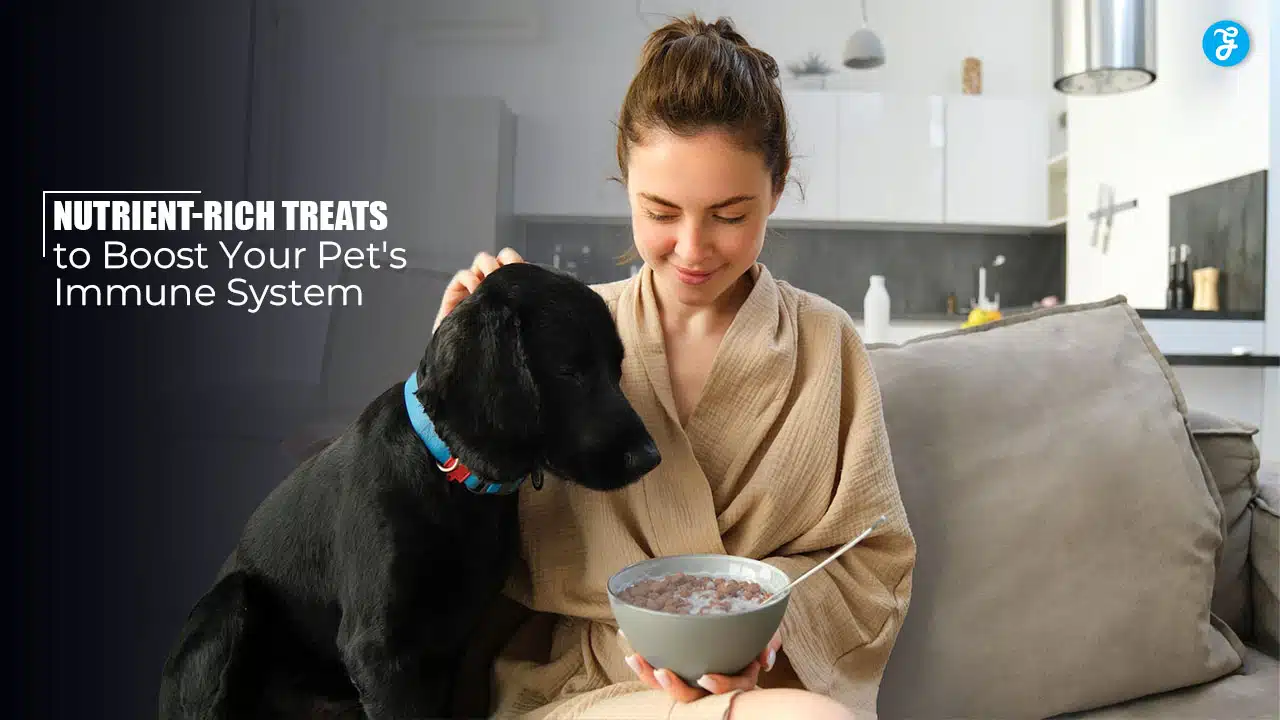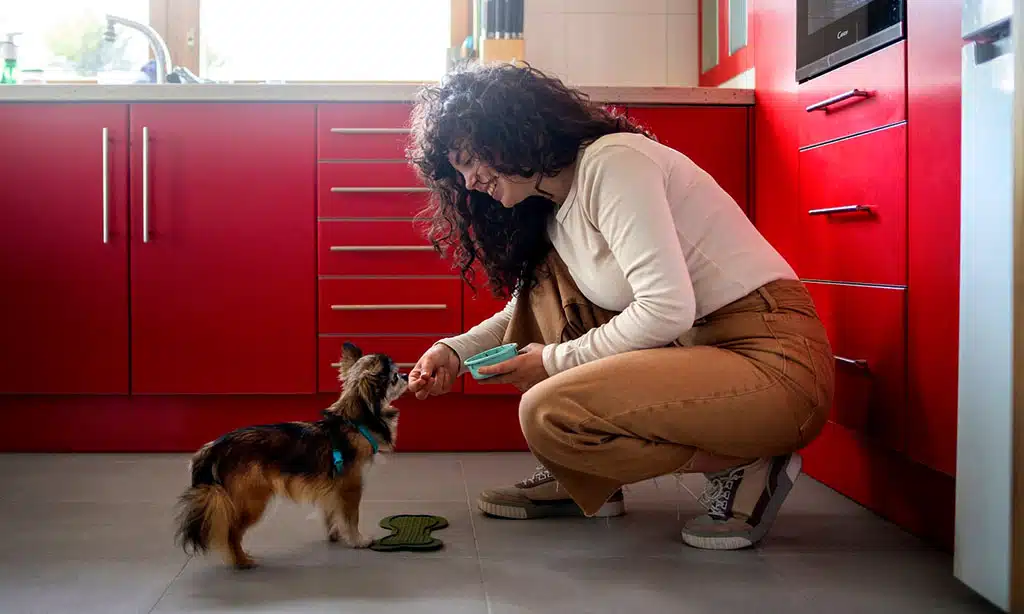Just like humans, pets benefit greatly from a balanced diet rich in nutrients that support their immune system. A strong immune system is crucial for your pet’s health, helping to ward off illnesses, improve energy levels, and even promote a longer, happier life.
By incorporating nutrient-rich treats into your pet’s diet, you can give their immune system a much-needed boost while rewarding them with tasty snacks.
This article delves into seven highly beneficial treats for boosting your pet’s immune system. We’ll explore the nutritional value of each, their health benefits, and how to incorporate them into your pet’s diet safely.
Why Immune Health is Important for Your Pet?
A healthy immune system is your pet’s first line of defense against infections, diseases, and other health issues. Keeping your pet’s immune system strong ensures it stays resilient, energetic, and able to combat everyday pathogens. Here’s why focusing on immune health matters:
- Protects Against Illnesses: A strong immune system reduces your pet’s susceptibility to infections and chronic diseases.
- Boosts Recovery: Pets with robust immunity recover faster from injuries and illnesses.
- Improves Overall Wellbeing: Immune-boosting nutrients support your pet’s energy levels, digestion, and mood.
A nutritious diet is one of the best ways to maintain and support your pet’s immune system. Let’s look at seven nutrient-rich treats that are delicious and offer numerous health benefits.
1. Blueberries
Blueberries are packed with antioxidants, fiber, and vitamins, making them one of the best treats for enhancing your pet’s immune system.
These tiny berries are also low in calories, making them an ideal snack for pets of all sizes.
- Rich in Antioxidants: Blueberries are high in antioxidants, particularly vitamins C and E, which help combat free radicals in your pet’s body.
- Fiber for Digestive Health: The fiber content in blueberries supports healthy digestion, which is essential for nutrient absorption and immunity.
- Vitamins and Minerals: Blueberries contain important vitamins and minerals, such as potassium and folate, which aid in immune function and cell repair.
How to Serve Blueberries to Pets
You can serve fresh or frozen blueberries as treats, mix them into your pet’s food, or even mash them into a paste. Start with a small quantity to ensure your pet tolerates them well.
Recommended Portion
For small dogs or cats, 2-3 blueberries are enough. Larger dogs can enjoy around 5-8 berries. Avoid giving blueberries to pets with diabetes or those sensitive to sugar.
2. Sweet Potatoes
Sweet potatoes are a nutritious, fiber-rich treat that provides essential vitamins and minerals to boost your pet’s immune system.
These root vegetables are an excellent source of beta-carotene, which the body converts into vitamin A—a critical nutrient for immune health.
- High in Beta-Carotene: The beta-carotene in sweet potatoes supports immune function, vision, and skin health.
- Rich in Dietary Fiber: Fiber aids in digestion and helps maintain a healthy gut, which is essential for a robust immune system.
- Contains Essential Minerals: Sweet potatoes are a great source of potassium, manganese, and vitamins B6 and C, all of which contribute to immune health.
How to Serve Sweet Potatoes to Pets
Cooked and mashed sweet potatoes are the safest way to feed them to your pet. Avoid adding any seasoning, salt, or sugar, as these can be harmful to pets.
Recommended Portion
A spoonful of cooked, mashed sweet potato is sufficient for small pets, while larger pets can have up to 1/4 cup. Serve sparingly to avoid excess sugar intake.
3. Salmon or Salmon Oil
Salmon and salmon oil are rich in omega-3 fatty acids, which play a crucial role in supporting immune health.
These healthy fats are known for their anti-inflammatory properties and are beneficial for your pet’s skin, coat, and overall immune response.
- High in Omega-3 Fatty Acids: Omega-3s help reduce inflammation in the body, which strengthens the immune system.
- Protein for Muscle Maintenance: Salmon is a high-protein food that provides essential amino acids for muscle and tissue repair.
- Rich in Vitamins: Salmon is a source of vitamins D and B12, both of which support immunity and brain health.
How to Serve Salmon to Pets
You can feed cooked, boneless salmon or add salmon oil to your pet’s food. Avoid raw salmon, as it can contain harmful bacteria or parasites.
Recommended Portion
For small pets, a teaspoon of salmon oil or a small piece of cooked salmon is ideal. Larger pets can have up to a tablespoon of salmon oil or 1-2 ounces of cooked salmon once or twice a week.
4. Carrots
Carrots are a popular, low-calorie snack that provides a crunch pet’s love and a nutrient profile that supports immune health.
Packed with beta-carotene, fiber, and essential vitamins, carrots are a fantastic treat to keep your pet’s immune system in top shape.
- Beta-Carotene for Immune Support: Beta-carotene enhances immune response and promotes healthy skin and vision.
- Fiber for Digestive Health: The fiber content in carrots aids digestion, which is crucial for nutrient absorption and immunity.
- Vitamins and Antioxidants: Carrots contain vitamins A, C, and K, which all play roles in immune system support and cell regeneration.
How to Serve Carrots to Pets
Carrots can be served raw, steamed, or lightly cooked. Chop them into small pieces to avoid choking hazards, especially for small pets.
Recommended Portion
Small pets can enjoy a few bite-sized pieces, while larger pets can have a small, whole carrot. Start with small portions to gauge your pet’s interest and tolerance.
5. Pumpkin
Pumpkin is a superfood for pets, providing an array of nutrients that promote immune health and support digestion.
It’s especially helpful for pets with sensitive stomachs, as the fiber content in pumpkin helps regulate bowel movements.
- High in Fiber: Pumpkin’s fiber content aids in digestion, promoting gut health, which is essential for a strong immune system.
- Rich in Beta-Carotene: Similar to carrots, pumpkin is high in beta-carotene, which supports immune health and reduces inflammation.
- Antioxidant Properties: The antioxidants in pumpkin help neutralize harmful free radicals, protecting your pet’s cells from damage.
How to Serve Pumpkin to Pets
Use plain, cooked pumpkin or canned pumpkin (unsweetened and without spices). Avoid pumpkin pie filling, which contains sugar and spices that can harm pets.
Recommended Portion
For small pets, a teaspoon of pumpkin is sufficient. Larger pets can enjoy up to a tablespoon. Pumpkin can be mixed into food or given as an occasional treat.
6. Bone Broth
Bone broth is a nutrient-dense liquid made by simmering bones and connective tissues, which releases collagen, amino acids, and minerals beneficial for immune health.
It’s easy to digest and can help improve your pet’s hydration and overall health.
- Packed with Amino Acids: Bone broth contains amino acids like glycine and proline, which support detoxification and tissue repair.
- Rich in Collagen: Collagen aids in joint health, skin elasticity, and gut health, all of which support the immune system.
- Minerals for Immune Support: Bone broth contains essential minerals, including calcium, magnesium, and phosphorus, which boost immune function and overall wellness.
How to Serve Bone Broth to Pets
Ensure the broth is plain, with no added salt, garlic, or onions. You can pour it over your pet’s food or serve it as a standalone treat.
Recommended Portion
Start with a few tablespoons for small pets and up to half a cup for larger pets. Bone broth can be served a few times a week as a nutrient-dense supplement.
7. Apples (Without Seeds)
Apples are a nutritious treat that provides fiber, antioxidants, and essential vitamins that support immune health. They are low in calories and offer a sweet, refreshing snack that most pets enjoy.
- Vitamin C for Immunity: Apples are a good source of vitamin C, which strengthens the immune system and promotes healthy skin.
- Fiber for Digestive Health: The fiber in apples aids in digestion and helps maintain a healthy weight.
- Antioxidants to Combat Free Radicals: Apples contain antioxidants, which protect your pet’s cells from damage and support long-term health.
How to Serve Apples to Pets
Remove the seeds and core, as they contain cyanide, which is harmful to pets. Slice the apple into bite-sized pieces, and serve raw or lightly cooked.
Recommended Portion
One or two small apple slices are enough for small pets, while larger pets can have a few more slices. Apples should be given as an occasional treat due to their sugar content.
Conclusion
Feeding your pet nutrient-rich treats can significantly boost their immune system and support their overall health.
From antioxidant-packed blueberries and omega-rich salmon to fiber-dense pumpkin and collagen-filled bone broth, these treats provide essential nutrients to keep your pet healthy, strong, and happy.
Remember to introduce each treat gradually, observe your pet for any signs of allergies or digestive issues, and always consult with your veterinarian to ensure these treats align with your pet’s dietary needs.
By adding these treats to your pet’s diet, you’re not only rewarding them with tasty snacks but also giving them a health boost that promotes long-term wellness.







































